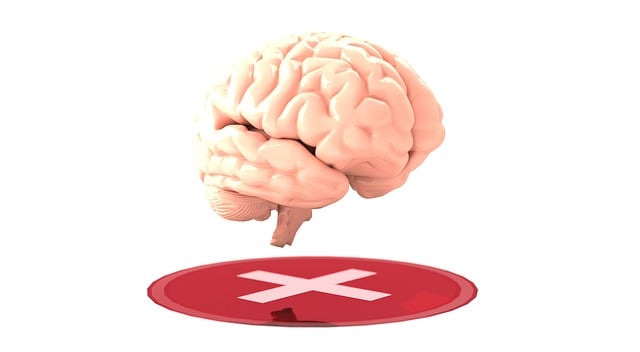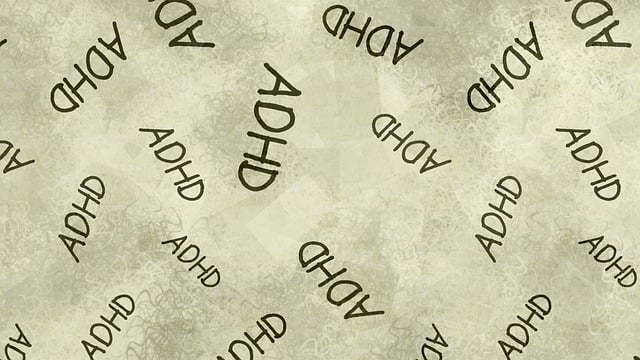A children's mental wellness app utilizing Exposure and Response Prevention (ERP) therapy aims to address anxiety, depression, and behavioral issues through accessible sessions. By engaging parents with educational content and promoting open conversations about emotional intelligence, the app fosters resilience and self-management skills in young users. Marketing strategies highlight ERP's effectiveness for anxiety disorders, emphasizing personalized sessions tailored to each child's fears, while reducing mental illness stigma. Leveraging digital platforms, SEO optimization (including "Therapy for Children Exposure and Response Prevention"), social media engagement, and content creation builds trust and reaches a broad audience. This multifaceted approach contributes to mental health policy analysis and advocates for evidence-based practices in children's mental wellness.
“In today’s digital age, mental wellness apps are transforming the way we support children’s mental health. This article delves into a comprehensive marketing strategy development guide for apps focusing on Exposure and Response Prevention (ERP) therapy. By understanding the unique needs of children and adolescents, we can craft targeted messages that highlight ERP’s proven benefits. We’ll explore digital strategies, from identifying the right audience to building an engaging app marketing plan, ensuring your mental wellness app reaches those who need it most effectively.”
- Understanding Target Audience: Identifying Children's Mental Health Needs
- Unveiling the Power of Exposure and Response Prevention (ERP) Therapy
- Crafting an Engaging Marketing Message: Communicating ERP's Benefits
- Digital Strategy Implementation: Building a Comprehensive App Marketing Plan
Understanding Target Audience: Identifying Children's Mental Health Needs

In developing a marketing strategy for a mental wellness app aimed at children, understanding the unique needs and challenges faced by this demographic is paramount. Children’s mental health is a complex landscape that requires tailored interventions. Many young individuals struggle with anxiety, depression, and other common issues that often manifest as behavioral problems at school or home. One effective therapeutic approach gaining traction in pediatric psychology is Exposure and Response Prevention (ERP), which helps children confront and manage their fears and anxieties in a safe, guided manner.
Marketing efforts should highlight the app’s ability to provide accessible therapy sessions based on ERP principles, fostering emotional resilience and self-management skills. By engaging parents and caregivers through educational content on mental wellness and promoting open conversations about emotional intelligence, the app can contribute to a supportive environment for children’s mental health. Public Awareness Campaigns Development centered around these themes can further underscore the importance of early intervention and normalizing discussions around mental health in childhood.
Unveiling the Power of Exposure and Response Prevention (ERP) Therapy

Exposure and Response Prevention (ERP) therapy is a powerful approach that has been gaining significant traction in mental wellness circles, especially for children. This innovative therapy focuses on helping young individuals confront their fears and anxieties head-on, teaching them to manage responses and ultimately reducing the impact of traumatic experiences. By gradually exposing them to distressing situations or thoughts, ERP enables children to develop coping mechanisms and build resilience.
For parents seeking effective solutions for their child’s mental health, understanding ERP can be transformative. It offers a structured framework to address various issues, including anxiety disorders, obsessive-compulsive disorder (OCD), and trauma. By promoting self-esteem improvement and trauma support services, ERP therapy empowers children to take control of their emotional well-being. This evidence-based practice has proven successful in numerous cases, leading to enhanced mental health awareness and improved quality of life for children and their families.
Crafting an Engaging Marketing Message: Communicating ERP's Benefits

In crafting an engaging marketing message for an app focused on children’s mental wellness using Exposure and Response Prevention (ERP) therapy, it’s crucial to highlight the unique benefits this approach offers. ERP is a highly effective evidence-based method for managing anxiety disorders in kids, helping them gradually face and overcome fears through structured exposure and learning healthy coping responses. By framing these advantages clearly, your app can stand out in a competitive market. For instance, emphasize how the app facilitates personalized therapy sessions tailored to each child’s specific anxieties, fostering their resilience and self-confidence.
Additionally, integrate keywords like Trauma Support Services and Mental Illness Stigma Reduction Efforts to appeal to a broader audience. Mention how your app contributes to mental health policy analysis by gathering data on treatment outcomes, thereby advocating for evidence-based practices and better resources for children’s mental health. This multifaceted approach not only showcases the app’s efficacy but also its role in broader societal progress towards better understanding and supporting mental wellness in young individuals.
Digital Strategy Implementation: Building a Comprehensive App Marketing Plan

In today’s digital era, a robust online presence is paramount for mental wellness apps aiming to reach a wide audience. A well-crafted digital strategy forms the backbone of an effective marketing plan, especially when targeting younger demographics through innovative channels. By leveraging social media platforms and search engine optimization (SEO), apps like Therapy for Children Exposure and Response Prevention can gain traction and build trust among parents seeking support for their children’s mental health. Integrating engaging content, such as informative blog posts and targeted ads, around topics like Mental Health Education Programs Design and Stress Management, can attract and retain users.
A comprehensive app marketing strategy should also incorporate email campaigns, influencer partnerships, and user-generated content to foster community engagement. Tailoring these strategies to resonate with specific age groups and their unique challenges ensures a more meaningful connection. For instance, focusing on school-age children’s anxieties or teens’ social media pressures can help position the app as a relatable solution, thereby increasing downloads and user retention rates.
In developing a marketing strategy for a mental wellness app focused on Therapy for Children using Exposure and Response Prevention (ERP) techniques, understanding the target audience’s unique needs is key. By identifying specific mental health challenges in children and presenting ERP as an effective, evidence-based solution, apps can empower both young users and their parents. A compelling marketing message highlighting ERP’s ability to reduce anxiety and phobias through gradual exposure can attract families seeking innovative treatment options. Digital strategy implementation should encompass a multi-channel approach, leveraging social media, content marketing, and app store optimization to increase visibility and download rates for these transformative mental health tools.














